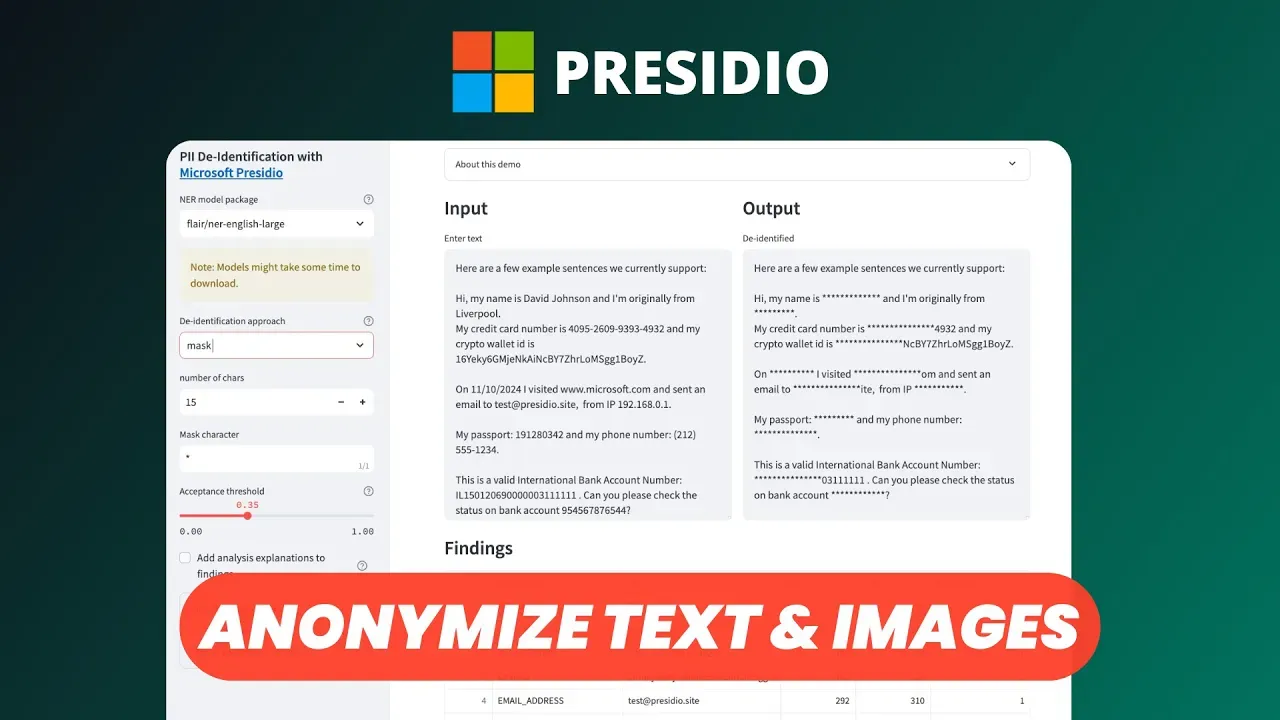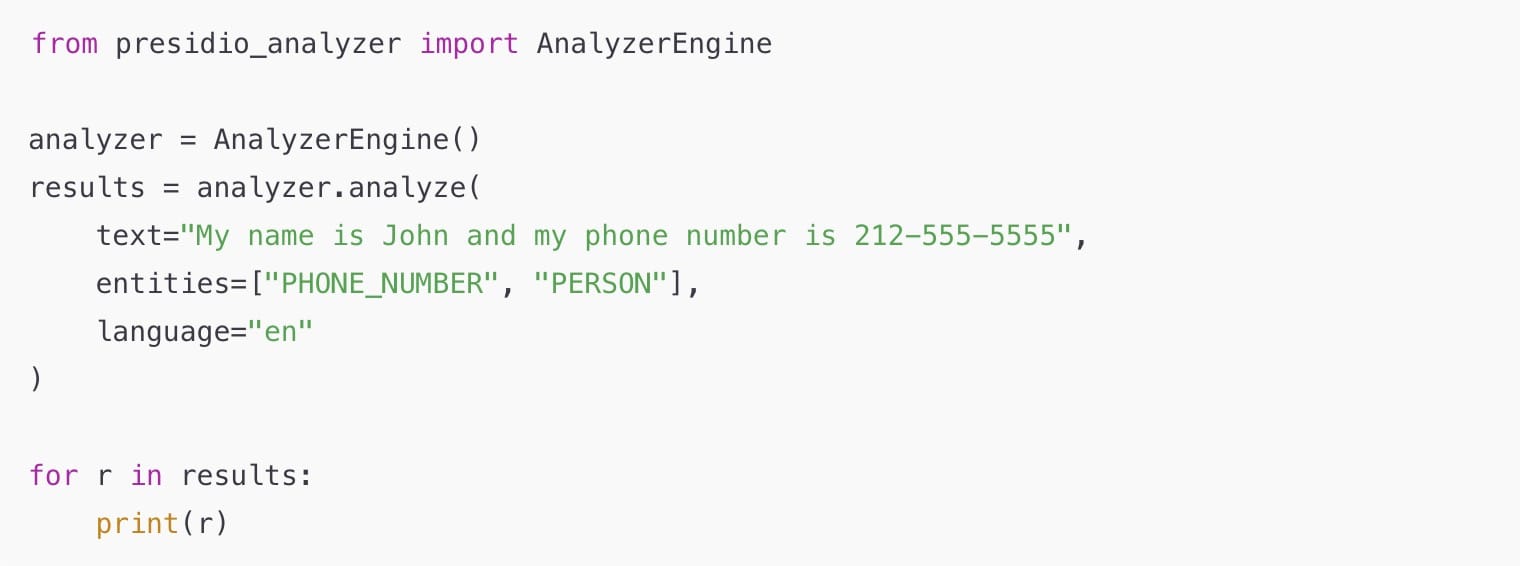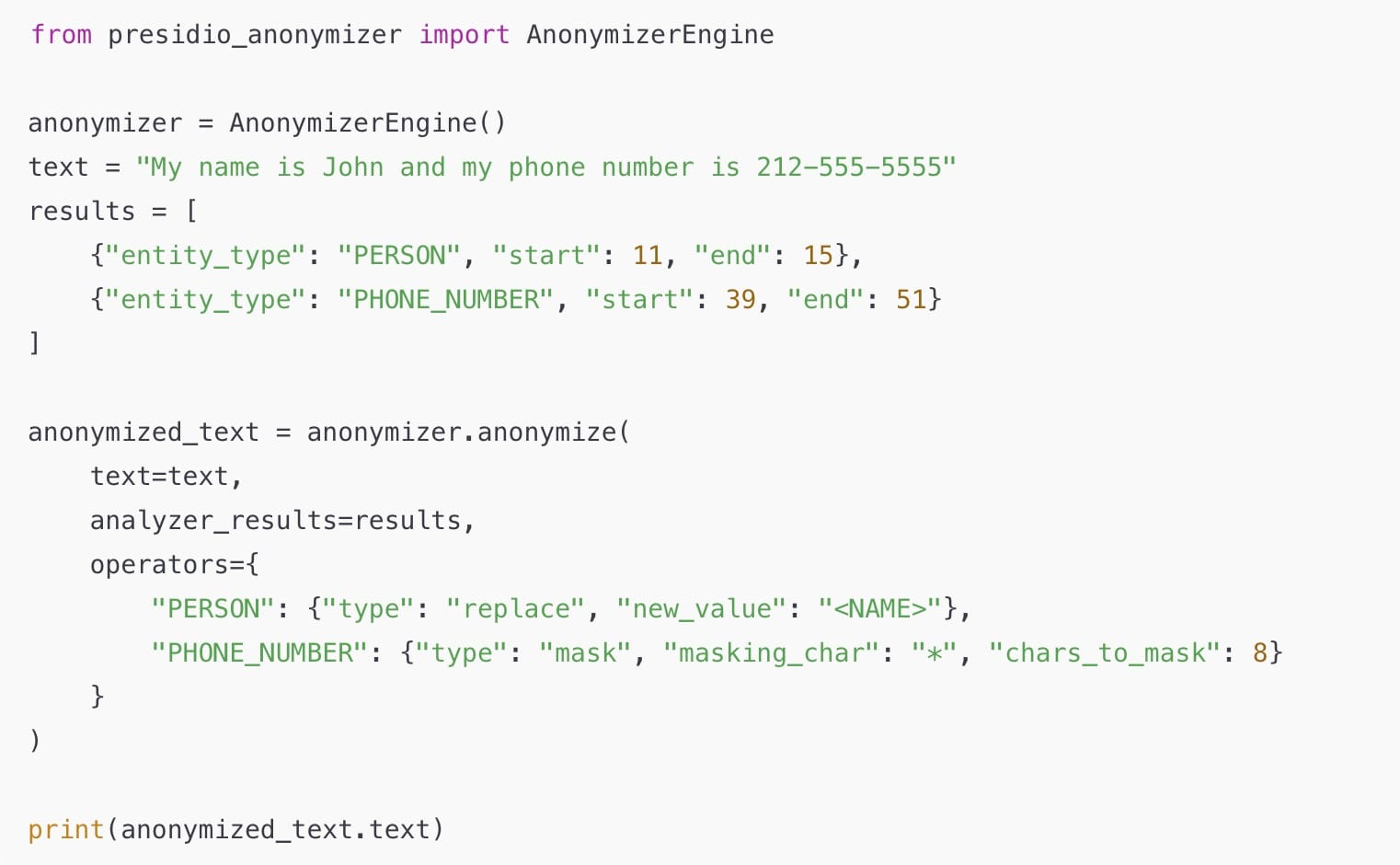Microsoft Presidio: Data Protection and De-identification SDK

In today’s data-driven world, protecting sensitive information is no longer optional — it’s a fundamental requirement for compliance, user trust, and responsible AI development.
Microsoft Presidio is an open-source framework designed specifically for data protection and de-identification. It helps developers automatically detect and anonymize sensitive data such as names, addresses, phone numbers, credit card details, and more, across text, audio, and images.
Presidio stands out because it’s modular, language-agnostic, and customizable — making it an excellent choice for integrating privacy features into enterprise systems, AI pipelines, or any data processing workflow.
Watch our platform overview on our YouTube channel
Analyzer
The Analyzer is the first key component of Presidio. Its job is to detect and classify sensitive entities within text.
It uses a combination of Named Entity Recognition (NER) models, regular expressions, and checksum validation to find Personally Identifiable Information (PII).
For example:

This code identifies “John” as a PERSON and “212-555-5555” as a PHONE_NUMBER, returning confidence scores and entity positions within the text.
You can also customize recognizers or train your own models for domain-specific terms (e.g., patient IDs, account numbers, etc.), giving Presidio remarkable flexibility for real-world data protection scenarios.
Anonymizer
Once sensitive data is detected, the Anonymizer takes over to mask, replace, or remove it based on defined rules.
Example:

Output:

This allows organizations to maintain data utility while protecting sensitive content — ideal for analytics, machine learning training, and compliance reporting.
API Parameters
Presidio provides REST APIs for both the analyzer and anonymizer engines.
Key API parameters include:
- text – the input data string.
- entities – list of entity types to detect (e.g.,
["PERSON", "EMAIL_ADDRESS"]). - language – language code (
"en","es", etc.). - score_threshold – minimum confidence score to include detections.
- operators – anonymization operations like
mask,replace, orredact.
For deployment, Presidio offers Docker containers so you can easily spin up microservices and integrate them via API endpoints.
Image Redactor
Presidio also supports image redaction, allowing you to automatically detect and blur PII in images (e.g., IDs, faces, documents).
It combines the Presidio Analyzer with Optical Character Recognition (OCR) tools such as Tesseract to find and redact sensitive text directly from images.
Example CLI command:

This makes it possible to sanitize screenshots, scanned forms, or ID photos before storage or distribution — crucial for compliance with regulations like GDPR and HIPAA.
Conclusion
Microsoft Presidio provides a powerful and extensible foundation for building privacy-aware applications.
Its combination of text analysis, anonymization, and image redaction features helps developers meet data protection standards while retaining the value of their datasets.
Whether you’re working with text logs, chat transcripts, or visual data, Presidio offers the tools to detect, protect, and anonymize sensitive information — all under a permissive open-source license.

